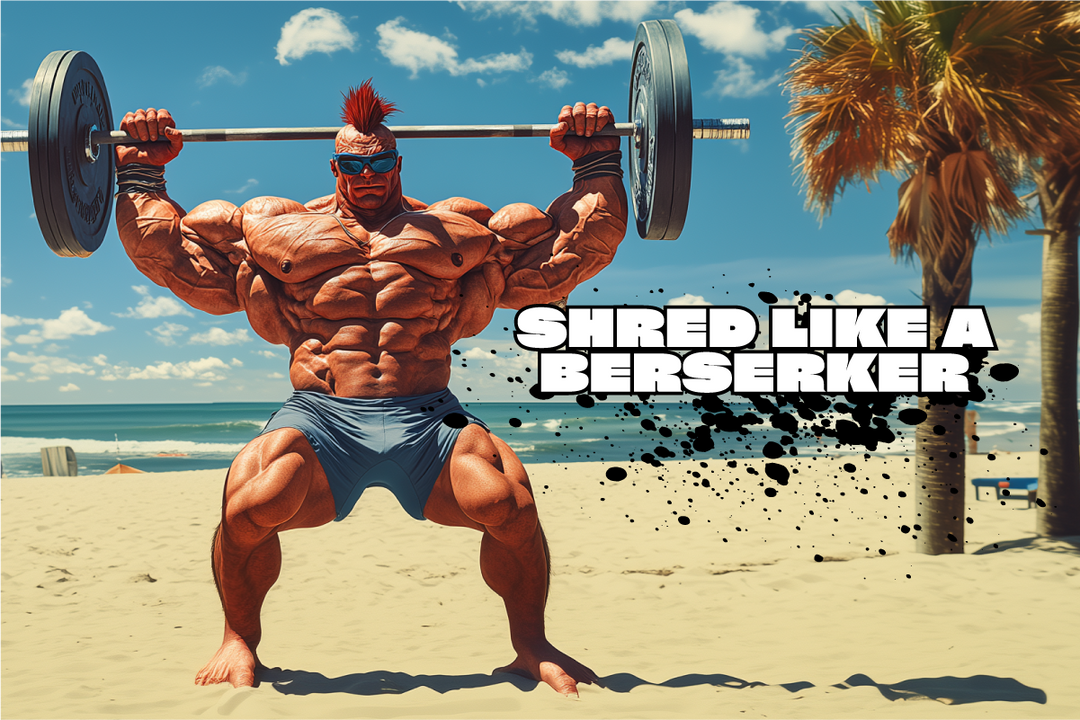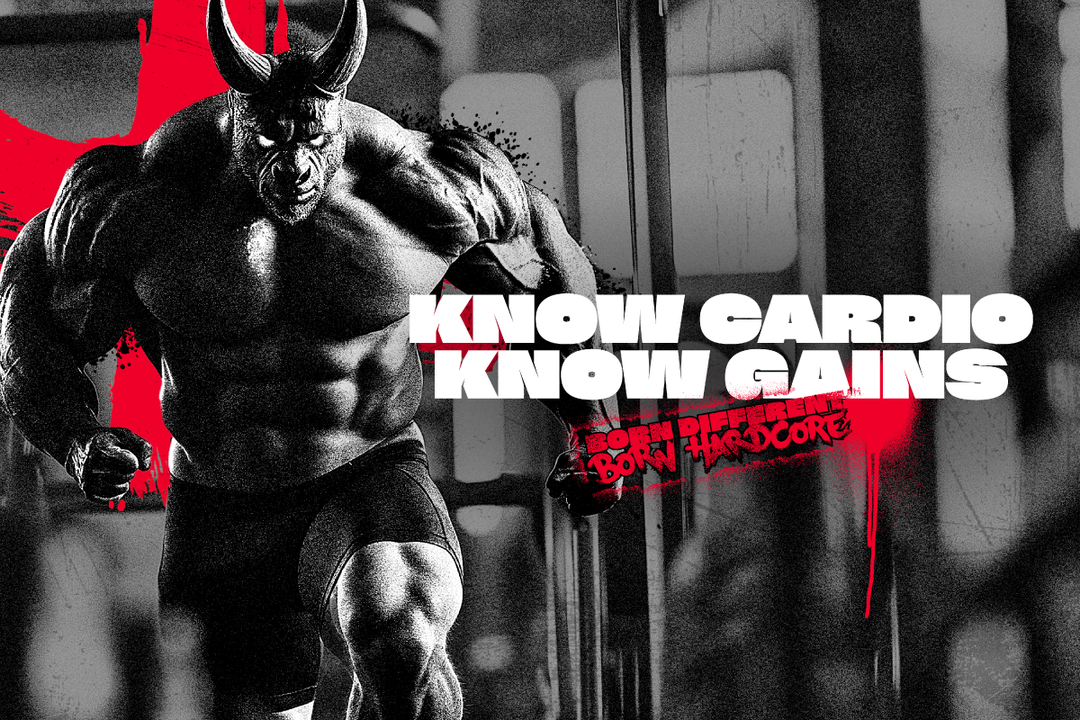9 UNEXPECTED WAYS YOU COULD BE KILLING YOUR TESTOSTERONE

You’re not gaining muscle mass as easily as you should be. You’re often pretty moody and low energy. Maybe you’ve even secretly Google’d how to get rid of man boobs. Don’t freak out - you’re not alone.
These are all signs of low testosterone in a man, and while declining T levels are just a normal part of aging, you could also be speeding up the process without realizing it. Generally, testosterone levels drop by about 1% each year after the age of 30, so if you’re relatively young and feel like you’ve got low test levels, the reason could be certain lifestyle choices. (We’d recommend getting a blood test to check your T levels and rule out other causes of your symptoms first.)
Don’t let all your hard work in the gym and with your diet go to waste by damaging your testosterone levels unknowingly - and there are lots of ways!
What factors affect testosterone levels?
1. Long term opioid usage
2. Lack of sleep
3. Dairy products
4. Plastic
5. Steroids
6. Obesity

7. Smoking & Alcohol
Alcohol use has similar repercussions. The male reproductive system consists of the hypothalamus and anterior pituitary gland (which both regulate hormones), and the testes. Alcohol can interfere with all of their functions, from reduced testosterone levels and slowed sperm maturation, to decreased production of LH and FSH.
8. Hair Growth Medications
9. Certain Fats
We’d never suggest cutting out an entire macronutrient group, but we would recommend being a bit picker about which fats you do have. Studies show that men who consume more Omega 6 fatty acids and trans fats (as a percentage of their total daily calories) have lower free and total testosterone levels, and lower sperm count, compared to men who don’t eat as much of those fats.
What should I do if I think I have low testosterone?

While you may not be able to stop the inevitable aging process on T levels, you can certainly prevent it from nose diving completely. More strength gains, muscle mass, libido and energy can be attained, so long as you’re willing to put in the work!
REFERENCES
Long-term opioid usage and declining testosterone - Birthi, Pravardhan et al. “Hypogonadism associated with long-term opioid therapy: A systematic review.” Journal of opioid management vol. 11,3 (2015): 255-78. doi:10.5055/jom.2015.0274
Examples of Opioids - https://www.hhs.gov/opioids/prevention/index.html
Poor Sleep #2 - Leproult, Rachel, and Eve Van Cauter. “Effect of 1 week of sleep restriction on testosterone levels in young healthy men.” JAMA vol. 305,21 (2011): 2173-4. doi:10.1001/jama.2011.710
Poor Sleep - https://www.uchicagomedicine.org/forefront/news/sleep-loss-lowers-testosterone-in-healthy-young-men (aging 10-15 years)
Dairy - Maruyama, Kazumi et al. “Exposure to exogenous estrogen through intake of commercial milk produced from pregnant cows.” Pediatrics international : official journal of the Japan Pediatric Society vol. 52,1 (2010): 33-8. doi:10.1111/j.1442-200X.2009.02890.x
Dairy 2 (skim milk notes) - file:///C:/Users/jculver/Downloads/1479-683X-EJE-18-0591.pdf
Plastics - Meeker, John D, and Kelly K Ferguson. “Urinary phthalate metabolites are associated with decreased serum testosterone in men, women, and children from NHANES 2011-2012.” The Journal of clinical endocrinology and metabolism vol. 99,11 (2014): 4346-52. doi:10.1210/jc.2014-2555
Phthalates sources - https://www.cdc.gov/biomonitoring/Phthalates_FactSheet.html#:~:text=Phthalates%20are%20in%20hundreds%20of,garden%20hoses%2C%20and%20medical%20tubing.
Steroids resulting in hypogonadism - Kanayama, Gen et al. “Prolonged hypogonadism in males following withdrawal from anabolic-androgenic steroids: an under-recognized problem.” Addiction (Abingdon, England) vol. 110,5 (2015): 823-31. doi:10.1111/add.12850
Steroids 2 - Rasmussen, Jon Jarløv et al. “Former Abusers of Anabolic Androgenic Steroids Exhibit Decreased Testosterone Levels and Hypogonadal Symptoms Years after Cessation: A Case-Control Study.” PloS one vol. 11,8 e0161208. 17 Aug. 2016, doi:10.1371/journal.pone.0161208
Obesity, type 2 Diabetes - https://www.medpagetoday.com/resource-centers/hypogonadism/acquired-causes-secondary-hypogonadism-adult-male-/1105
Young men - obesity, diabetes, steroids, drugs - Cohen, Jordan et al. “Low Testosterone in Adolescents & Young Adults.” Frontiers in endocrinology vol. 10 916. 10 Jan. 2020, doi:10.3389/fendo.2019.00916
Smoking - William H. James, Smoking, sperm quality and testosterone level, Human Reproduction, Volume 17, Issue 12, December 2002, Pages 3275–3276, https://doi.org/10.1093/humrep/17.12.3275
Alcohol - Emanuele, M A, and N V Emanuele. “Alcohol's effects on male reproduction.” Alcohol health and research world vol. 22,3 (1998): 195-201.
Finasteride (hair cream) - Caruso, Donatella et al. “Patients treated for male pattern hair with finasteride show, after discontinuation of the drug, altered levels of neuroactive steroids in cerebrospinal fluid and plasma.” The Journal of steroid biochemistry and molecular biology vol. 146 (2015): 74-9. doi:10.1016/j.jsbmb.2014.03.012
Omega 6 & Trans Fats - MInguez-Alarcón, Lidia et al. “Fatty acid intake in relation to reproductive hormones and testicular volume among young healthy men.” Asian journal of andrology vol. 19,2 (2017): 184-190. doi:10.4103/1008-682X.190323
Testosurge - Poole et al. (2009). Effects of TESTOSURGE Supplementation on Strength, Body Composition and Hormonal Profiles during an 8-Week Resistance Training Program. JISSN. 6(Suppl1): P12
DISCLAIMER - All training, fitness, diet, physiological, and physical activity information provided herein, including but not limited to exercise types, exercise frequency, training routines/programs, and diet/habit suggestions are for educational and informative purposes only, and does not constitute as being, and should not be taken as, professional or medical advice. We are not Medical Doctors. Use of the information is at the sole risk of the reader. Consult your family doctor and/or health care professional before starting this or any fitness/health program to determine if it is the right fit for your unique needs. This is particularly true if you (or your family) have a history of high blood pressure or heart disease, or if you have ever experienced chest pain when exercising or have experienced chest pain in the past month when not engaged in physical activity, smoke, have high cholesterol, are obese, or have a bone or joint problem that could be made worse by a change in physical activity.
Do not start this fitness program if your physician or health care provider advises against it. It is not intended to: substitute for and/or provide informed medical advice; act as diagnosis, treatment, cure, prevention, or care for any disease and/or condition. You should not: rely solely on this information, and/or; use this information to diagnose, treat, cure, prevent and/or care for any disease and/or health problems.




